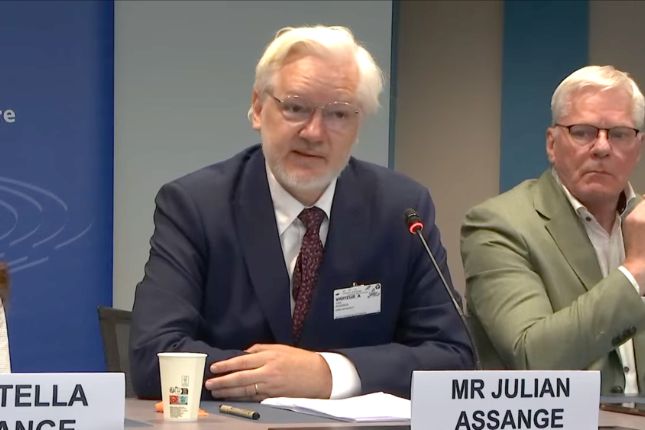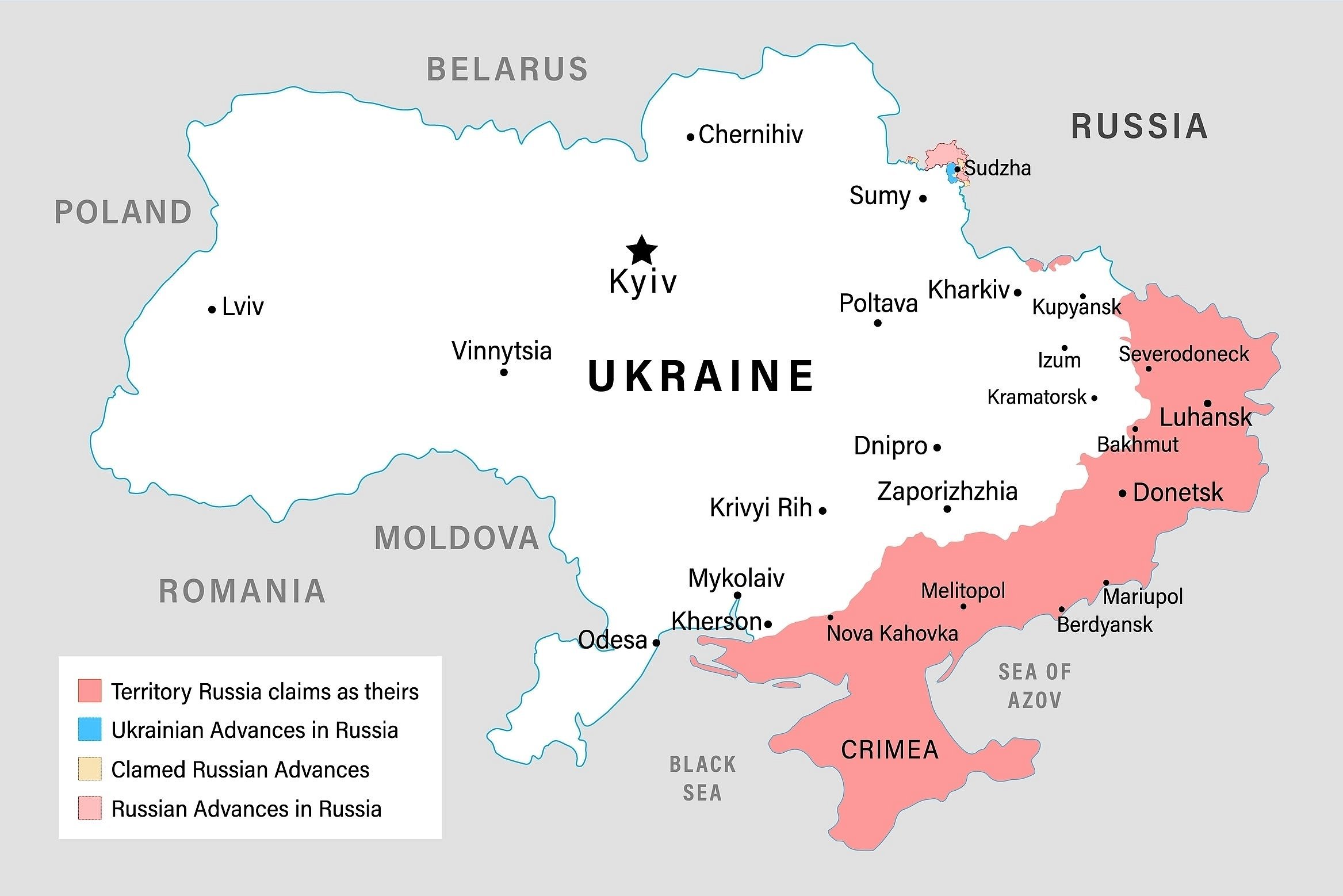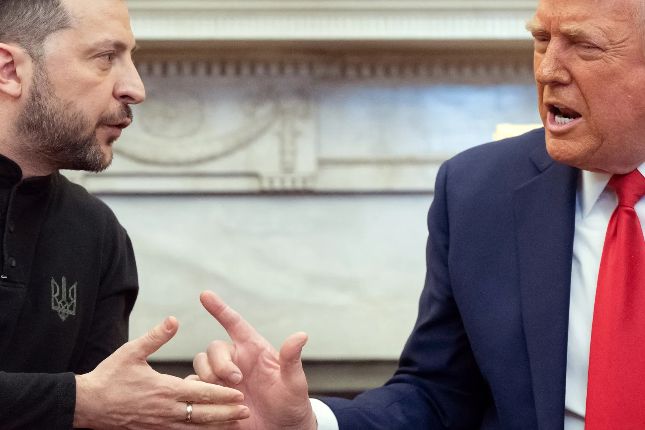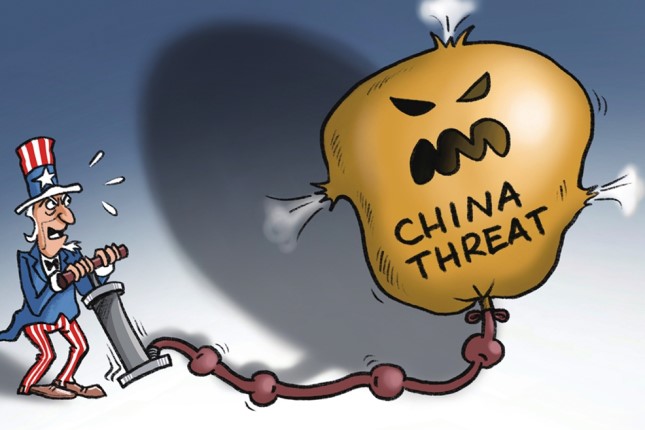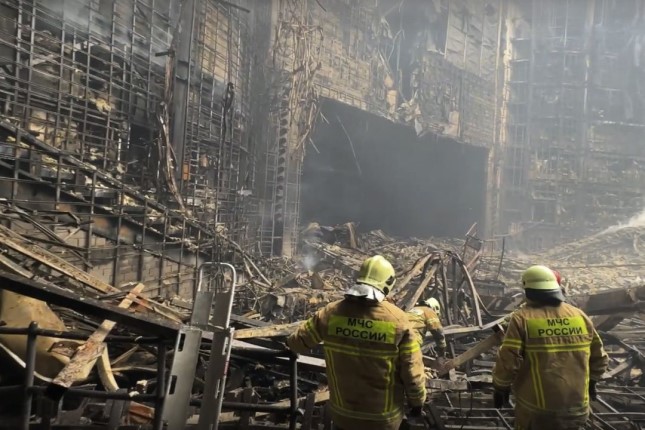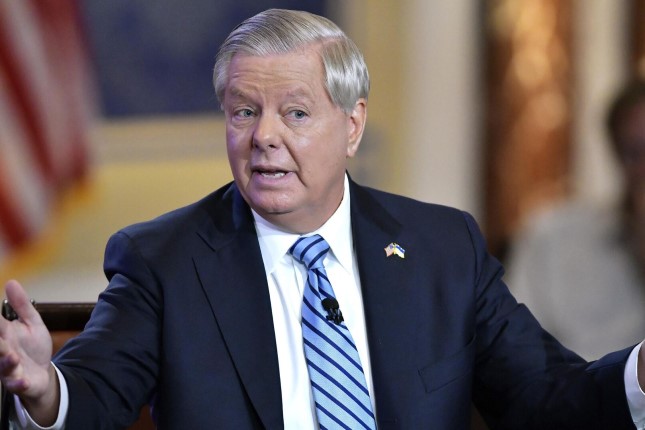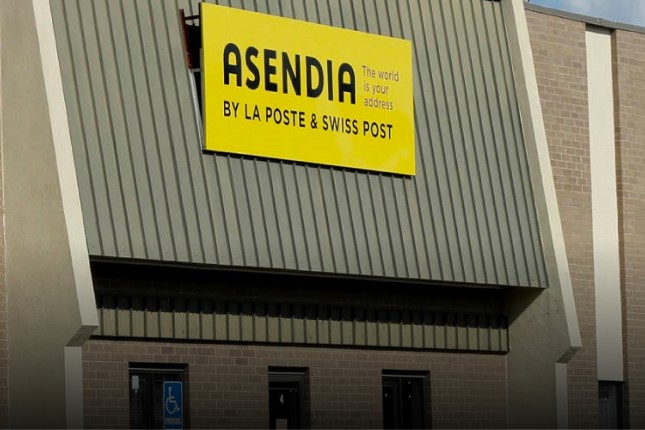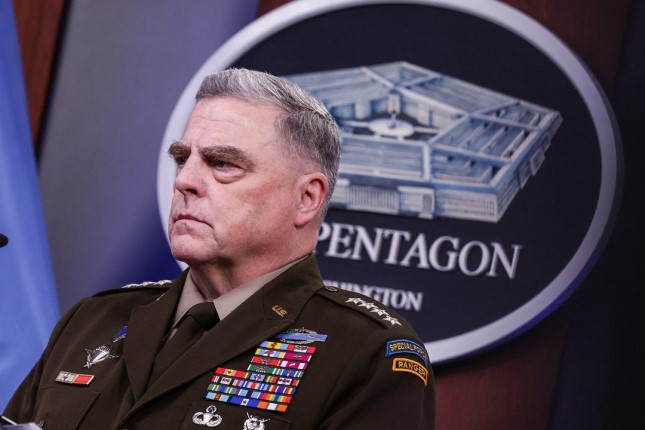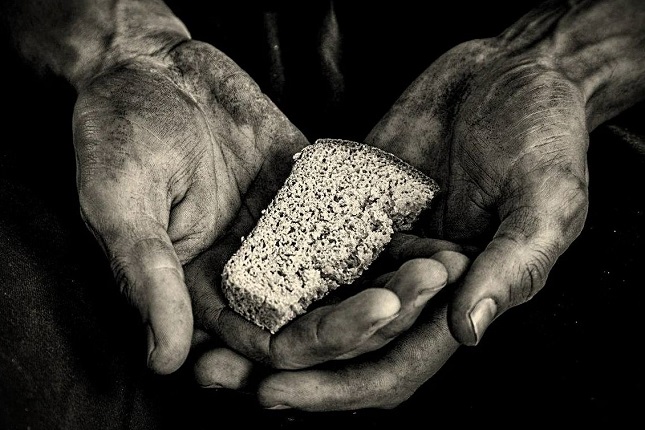Julian Assange’s address Tuesday morning to the Committee on Legal Affairs and Human Rights of the Parliamentary Assembly of the Council of Europe (PACE), updated to include Assange’s responses during the Q&A:
Julian Assange
Ladies and gentlemen, the transition from years of confinement in a maximum security prison to being here before the representatives of 46 nations and 700 million people is a profound and a surreal shift. The experience of isolation for years in a small cell is difficult to convey. It strips away one sense of self, leaving only the raw essence of existence.
I’m yet not fully equipped to speak about what I have endured. The relentless struggle to stay alive, both physically and mentally. Nor can I speak yet about the death by hanging, murder and medical neglect of my fellow prisoners.
I apologize in advance if my words falter, or if my presentation lacks the polish you might expect from such a distinguished forum. Isolation has taken its toll. Which I am trying to unwind. And expressing myself in this setting is a challenge. However, the gravity of this occasion and the weight of the issues at hand compel me to set aside my reservations and speak to you directly.
I have traveled a long way, literally and figuratively, to be before you today. Before our discussion or answering any questions you might have. I wish to thank PACE for its 2020 resolution, which stated that my imprisonment set a dangerous precedent for journalists. I noted that the U.N. Special Rapporteur on torture called for my release. I’m also grateful for Pace’s 2021 statement, expressing concern over credible reports that U.S. officials discussed my assassination again, calling for my prompt release, and I commend the Legal Affairs and Human Rights Committee for commissioning a renowned rapporteur.
Sooner I will start to investigate the circumstance surrounding my detention and conviction, and the consequent implications for human rights. However, like so many of the efforts made in my case, whether they were from parliamentarians, presidents, prime ministers, the pope, U.N. officials and diplomats, unions, legal and medical professionals, academics, activists or citizens, none of them should have been necessary.
None of the statements, resolutions, reports, films, articles, events, fundraisers, protests and letters over the last 14 years should have been necessary. But all of them were necessary because without them, I never would have seen the light of day. This unprecedented global effort was needed because the legal protections of the legal protections that did exist, many existed only on paper when not effective in any remotely reasonable time.
On the Plea Deal
I eventually chose freedom over and realizable justice. After being detained for years and facing 175 year sentence with no effective remedy. Justice for me is now precluded, as the U.S. government insisted in writing into its plea agreement that I cannot filed a case at the European Court of Human Rights or even the Freedom of Information Act request over what it did to me as a result of its extradition request.
I want to be totally clear. I am not free today because the system worked. I am free today after years of incarceration because I pled guilty to journalism. I pled guilty to seeking information from a source. I pled guilty to obtaining information from a source. And I pled guilty to informing the public what that information was. I did not plead guilty to anything else.
I hope my testimony today can serve to highlight the weakness, the weaknesses of the existing safeguards and to help those whose cases are less visible but who are equally vulnerable. As I emerge from the dungeon of Belmarsh, the truth now seems less discernible, and I regret how much ground has been lost during that time period. How expressing the truth has been undermined, attacked, weakened and diminished.
I see more impunity, more secrecy, more retaliation for telling the truth and more self-censorship. It is hard not to draw a line from the U.S. government’s prosecution of me. It’s crossing. Crossing the Rubicon by internationally criminalizing journalism to the true climate for freedom of expression that exists now.
On WikiLeaks’ Work
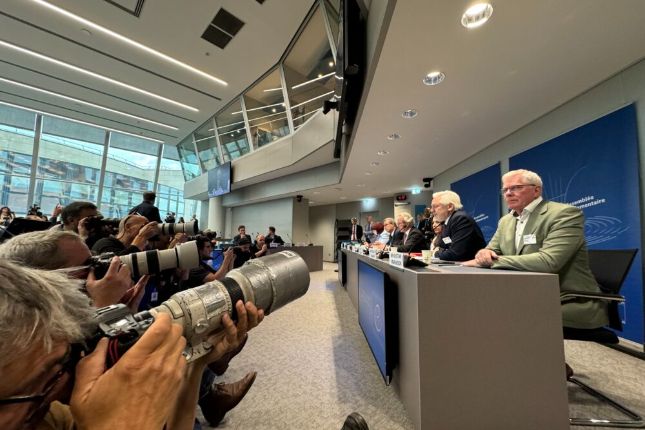
Assange testifying in Strasbourg Tuesday. Photo: Barnaby Nerberka.
When I founded WikiLeaks, it was driven by a simple dream to educate people about how the world works, so that through understanding, we might bring about something better. Having a map of where we are lets us understand where we might go. Knowledge empowers us to hold power to account and to demand justice where there is none. We obtained and published truth about tens of thousands of hidden casualties of war and other unseen horrors about programs of assassination, rendition, torture and mass surveillance.
We revealed not just when and where these things happened, but frequently the policies, the agreements and the structures behind them. When we published Collateral Murder, the infamous gotten camera footage of a U.S. Apache helicopter crew eagerly blowing to pieces Iraqi journalists and their rescuers. The visual reality of modern warfare shocked the world, so we also used interest in this video to direct people to the classified policies for when the U.S. military could deploy lethal force in Iraq.
How many civilians could be and how many civilians could be killed before gaining higher approval? In fact, 40 years of my potential 175 year sentence was for obtaining and releasing those policies.
The practical political vision I was left with after being immersed in the world’s dirty wars and secret operations, is simple. Let us stop gagging, torturing, and killing each other for a change. Get these fundamentals right and other political, economic and scientific processes that have space to educate. We’ll have space to take care of the rest.
WikiLeaks work was deeply rooted in the principles that this Assembly stands for. Our journalism elevated freedom of information and the public’s right to know. It found its natural operational home in Europe. I lived in Paris and we had formal corporate registrations in France and in Iceland. A journalistic and technical staff was spread throughout Europe. We publish to the world from servers based in France, in Germany and in Norway.
Manning’s Arrests
But 14 years ago, the United States military arrested one of our lead whistleblowers, Private First Class Manning, a U.S. intelligence analyst based in Iraq. The U.S. government concurrently launched an investigation against me and my colleagues. The U.S. government illicitly sent planes of agents to Iceland, paid bribes to an informant to steal our legal and journalistic work product and without formal process, pressured banks and financial services to block our subscriptions and to freeze our accounts.
The U.K. government took part in some of this retribution. It admitted at the European Court of Human Rights that it had unlawfully spied on my U.K. lawyers during this time.
Ultimately, this harassment was legally groundless. President Obama’s Justice Department chose not to indict me. Recognizing that no crime had been committed, the United States had never before prosecuted a publisher for publishing or obtaining government information. To do so would require a radical and ominous reinterpretation of the U.S. Constitution. In January 2017, Obama also commuted the sentence of Manning, who had been convicted of being one of my sources.
C.I.A.’s Retribution
However, in February 2017, the landscape changed dramatically. President Trump had been elected. He appointed two wolves in MAGA hats. Mike Pompeo, a Kansas congressman and former arms industry executive, as C.I.A. director, and William Barr, a former C.I.A. officer, as U.S. attorney general.
By March 2017, WikiLeaks had exposed the C.I.A.’s infiltration of fringe political parties. Its spying on French and German leaders, its spying on the European Central Bank, European economic ministries, and its standing orders to spy on French on the street as a whole. We revealed the C.I.A.’s vast production of malware and viruses, its subversion of supply chains. Its subversion of antivirus software, cars, smart TVs and iPhones.
C.I.A. Director Pompeo launched a campaign of retribution. It is now a matter of public record that under Pompeo’s explicit direction, the C.I.A. drew up plans to kidnap and to assassinate me within the Ecuadorean Embassy in London and authorize going after my European colleagues, subjecting us to theft, hacking attacks and the planting of false information. My wife and my infant son were also targeted.
A C.I.A. asset was permanently assigned to track my wife. And instructions were given to obtain DNA from my six month old son’s nappy. This is the testimony of more than 30 current and former U.S. intelligence officials speaking to the U.S. press, which has been additionally corroborated by records seized and the prosecution brought against some of the C.I.A. agents involved.
The C.I.A. is targeting of myself, my family and my associates through aggressive, extrajudicial and extraterritorial means. Provides a rare insight into how powerful intelligence organizations engage in transnational repression. Such repressions are not unique. What is unique is that we know so much about this one. Due to numerous whistleblowers and to judicial investigations in Spain.
This assembly is no stranger to extraterritorial abuses by the C.I.A.. Pace’s groundbreaking report on C.I.A. renditions in Europe exposed how the C.I.A. operated secret detention centers and conducted unlawful renditions on European soil, violating human rights and international law. In February this year, the alleged source of some of our C.I.A. revelations, former C.I.A. officer Joshua Schulte, was sentenced to 40 years in prison under conditions of extreme isolation.
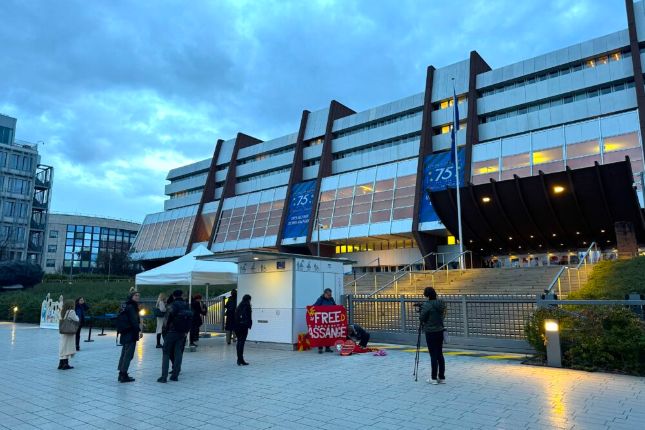
Council of Europe in Strasbourg. Photo: Barnaby Nerberka.
His windows are blacked out and a white noise machine plays 24 hours a day over his door so that he cannot even shout through it. These conditions are more severe than those found in Guantanamo Bay.
But transnational repression is also conducted by abusing legal processes. The lack of effective safeguards against this means that Europe is vulnerable to having its mutual legal assistance and expedition treaties hijacked by foreign powers to go after dissenting voices in Europe. In Michael Pompeo’s memoirs, which I read in my prison cell, the former C.I.A. director bragged about how he pressured the U.S. attorney general to bring an extradition case against me in response to our publications about the C.I.A..
Indeed, acceding to Pompeo’s requests, the U.S. attorney general reopened the investigation against me that Obama had closed and re-arrested Manning, this time as a witness, and he was held in a prison for over a year, fined $1,000 a day. In a formal attempt to coerce her into providing secret testimony against me, she ended up attempting to take her own life.
We usually think of attempts to force journalists to testify against their sources. But Manning was now a source being forced to testify against the journalist.
By December 2017, C.I.A. Director Pompeo had got his way and the U.S. government issued a warrant to the U.K. for my extradition. The U.K. government kept the warrant secret from the public for two more years, while it, the U.S. government and the new president of Ecuador moved to shape the political, legal and the diplomatic grounds for my arrest.
When powerful nations feel entitled to target individuals beyond their borders, those individuals do not stand a chance unless there are strong safeguards in place and a state willing to enforce them without this. No individual has a hope of defending themselves against the vast resources that a state aggressor can deploy.
If the situation were not already bad enough, in my case, the U.S. government asserted a dangerous, dangerous new global legal position. Only U.S. citizens have free speech rights. Europeans and other nationalities do not have free speech rights, but the U.S. claims its Espionage Act still applies to them, regardless of where they are. So Europeans in Europe must obey the U.S. secrecy law with no defenses at all.
As far as the U.S. government is concerned, an American in Paris can talk about what the U.S. government is up to. Perhaps, but for a Frenchman in Paris, to do so is a crime with no defense. And he may be extradited, just like me.
Criminalizing News-Gathering
Now that one foreign government has formally asserted that Europeans have no free speech rights, a dangerous precedent has been set. Other powerful states will inevitably follow suit. The war in Ukraine has already seen the criminalization of journalists in Russia. But based on the precedent set in my expedition, there is nothing to stop Russia or indeed any other state from targeting European journalists, publishers or even social media users by claiming that their domestic secrecy laws have been violated.
The rights of journalists and publishers within the European space are seriously threatened.
Transnational repression cannot become the norm here. As one of the world’s two great norms, setting institutions, PACE must act.
The criminalization of news-gathering activities is a threat to investigative journalism everywhere. I was formally convicted by a foreign power for asking, for receiving and publishing truthful information about that power. While I was in Europe.
The fundamental issue is simple journalists should not be prosecuted for doing their jobs. Journalism is not a crime. It is a pillar of a free and informed society.
Mr. Chairman, distinguished delegates. If Europe is to have a future where the freedom to speak and the freedom to publish the truth are not privileges enjoyed by a few, but rights guaranteed to all. Then it must act. So what has happened in my case never happens to anyone else.
I wish to express my deepest gratitude to this assembly, to the conservatives, Social Democrats, liberals, leftists, Greens and independents who have supported me throughout this ordeal and to the countless individuals who have advocated tirelessly, tirelessly for my release. Is heartening to know that in a world often divided by ideology and interests, there remains a shared commitment to the protection of essential human liberties.
Freedom of expression and all that flows from it is at a dark crossroad. I fear that unless institutions like PACE wake up to the gravity of the situation, it will be too late. Let us all commit to doing our part to ensure that the light of freedom never demands that the pursuit of truth will live on, and that the voices of the many are not silenced by the interests of the few.
Responses During Q&A
After 14 years detained in the U.K., including over five years in a maximum security prison and facing 175 year sentence, with the prospect of years more in prison before being able to, have a shot at the European Court of Human Rights.
I, accepted, a plea offer from the United States that would release me from prison immediately. The United States insisted, that I not be allowed to take a case in relation to what had happened to me, in relation to its extradition proceedings. Nor that I could even file a Freedom of Information Act request, on the U.S. government, to see what was done.
There will never be a hearing into what has happened. And that’s why, it’s so important that, PACE, the uncertainty within Europe as to the defenses that can be used by journalists here to protect themselves from transnational repression and extradition. If left in its current state, will inevitably be abused by other states. Yeah. So, you know, I’m setting institutions like PA pace must move to make the situation clear that what happened to me cannot happen again.
Why He Attended
I am here because I believe it is an essential first step for PACE to act, to get the ball rolling, to address the problems of transnational repression and also to make it clear that national security journalism is possible within European borders. As for my adaptation to the big wide world, outside of how serious an embassy siege and maximum security prison, it sure takes some adjustment.
It’s not simply the spooky sound of electric cars that are very spooky. But it’s the it is also the change in the society. Where we once produced a pourtant, where he once released, important war crimes videos. That stirred public debate. Now, every day there are live streaming horrors from the wars in Ukraine and the war in Gaza.
Hundreds of journalists have been killed in Gaza and Ukraine combined.
The impunity. Seems to mount, and it is still uncertain what we can do about it.
By reputation to the world, of course, includes some positive but still tricky things. Becoming a father again to children who have grown up without me. Becoming a husband again. Even dealing with a mother in law.
These, trying family issues. No, she’s. She’s a very lovely woman. I like. I like them very much.
On Asylum
Political asylum is an absolutely essential relief valve for human rights abuses within states. That people can leave a state that is persecuting them not only saves individual lives. It provides a mechanism where journalists can continue to report on their societies after they have been hounded out, and ultimately, the threat of people leaving a state, is what the final analysis controls.
We have seen examples in history of states that made it difficult or impossible for people to leave. And we can see how the situation for people living there collapsed. It must be competition between states, to be good places for people to live and to work.
The assault on asylum through means of transnational repression. It’s another matter in my case.
It was difficult to find a state that would give asylum, that I was able to get to. There is a big gap in the asylum system for people. Who are not fleeing their own state, but fleeing an ally of that state. Or any third state. That was my case. Asylum law does not easily cover the case where, let’s say an Australian is fleeing persecution by the United States.
Or we could imagine a Kazakhstani fleeing persecution by Russia or China. I was not able to apply for asylum within the U.K.. Of course, the U.K. has its own particular political angle. It might have been difficult to convince the courts to give me, or in fact anyone, asylum in relation to the United States in the U.K.. But there wasn’t even a chance because citizens from third states, under the 1951 convention, as it’s implemented in most European states, cannot apply for asylum.
On the High Court Case
In the final U.K. High High Court case, which I won and the U.S., appealed against.
I won under the basis of nationality discrimination. That is in the U.K. Extradition Act. You’re not meant to discriminate. At trial or during a penalty phase against someone on the basis of their nationality.
The U.S. tried different tricks to get around that in the U.K. system, and it was uncertain whether we, whether I, or the United States would ultimately prevail. However, there is nothing in the European Charter. That prevents nationality discrimination in relation to extradition. So this is a small protection. It was hard to use within the U.K. Extradition Act.
But it’s not clear that it exists in most European states.
The first part of your questions about the C.I.A., the second part was about, do I see myself as a political prisoner? Answering the first one first? Yes. I was a political prisoner. The political basis for the U.S. government’s retributive acts against me was in relation to publishing the truth about what the U.S. government had done then in a formal legal sense, once the U.S. proceeded with its legal retribution, it used the Espionage Act, a classic, political offense. In relation to the C.I.A.’s, Campaign of transnational repression against Wikileaks.
We felt that something was going on at the time. There were many small signs that came together. But.
Having a ominous feeling and some, subtle input tips from a whistleblower and one of the, security contractors that the C.I.A. had contracted didn’t give me the full and disturbing picture, which later emerged.
It is a interesting example where intelligence organization has targeted and investigated of organization Wikileaks. As a result of our investigations, a criminal case in Spain, and in particular work done by U.S. journalists, which under the precedent that has been established in my case, might will now be themselves criminal. Detailed information about the actions of the C.I.A. took came out.
Those details involved the testimony of more than 30 current or former U.S. intelligence officials. A there are two, resulting processes. A criminal case in Spain with a number of victims, including my wife, my son, people who came to visit me at the embassy, lawyers, journalists, and a civil suit in the United States against the C.I.A. in the United States.
The C.I.A. has, in response to that civil suit declared formally by the C.I.A. director and the attorney general, state secrets privilege to knock out the case, the. Claim is that the C.I.A. may have a defense, but that defense is classified. And, so the case, the civil case cannot go forward. So it’s complete impunity. Within the U.S. system.
On Mistakes Made
Q: Mr. Assange, if you could go back in time, would you do everything the same? And if not, what would you do differently? I’m not asking just in the terms of personal cost that you suffered, but also in terms of effectiveness or impact of what you tried to do. Thank you.
This is a very deep question about free will. Why do people do things when they do them? Looking back. We were often constrained by. Our resources, the number of staff by secrecy, that was necessary to protect our sources. If I could go back and have a lot of extra resources. Of course. Political approaches.
Media approaches, could have maximized even further the impact, the revelations that we made. But I suppose your question is, is trying to say, well, were there any knobs that could be turned in hindsight, of course, thousands of small things. I was not from the United Kingdom. I had a good friend in the United Kingdom, Gavin McFadzean, who’s an American journalist.
A very good man. But it took me time to when I once I was trapped in the United Kingdom, it took me time to understand what U.K. society was about, who you could trust. You couldn’t trust the. Different types of maneuvers that are made, in that society. And, there are different media partners that, perhaps we, could have chosen differently.
Q: You were the subject of a European arrest warrant issued by Sweden. To what extent do you think the European arrest warrants are being used as tools of repression? And to what extent do you think the rules could be changed so that they can no longer be used for that purpose?
The European Arrest Warrant System was introduced post-September 11, with the political rationale that it would be used for the fast transfer of Muslim terrorists between European states. The first European arrest Warrant that was issued was issued by Sweden for a drunk driver. We must understand that when we pick a disfavored group, Muslims at that time and. Say, well, this repressive legislation, it’s only going to be for them, inevitably, bureaucrats, elements of the security state will seize upon those measures and apply them more broadly.
Injustice to one person spread soon enough to most people.
I don’t know, the statistics on how often arrest warrants were abused. I was there was an attempt to extradite me without any charge from the United Kingdom by Sweden. The. U.K. government subsequently changed the law to prevent extradition without charge. But in its amendment, to the existing legislation, it included a rider to make sure that it didn’t apply to me.
On First Amendment and Article 10
We performed a legal analysis to try to understand what the abilities and limitations were within Europe for publishing documents from a number of different countries, including United States.
We understood that in theory, article ten, should protect journalists in Europe. Similarly, looking at the U.S. First Amendment to its constitution, that no publisher had ever been prosecuted for publishing classified information from the United States, either domestically or internationally.
I expected some kind of harassment legal process. I was prepared to fight for that. I believe the value of these publications was such, it is okay to have that fight and that we would prevail because we had understood, what was legally possible. My naivete was believing in the law. When push comes to shove, laws are just pieces of paper, and they can be reinterpreted for political expediency.
They are the rules made by the ruling class more broadly. And if those rules don’t suit what it wants to do, it reinterprets them or hopefully, changes them, which is clearer? In the case of the United States, we angered one of the constituent powers of the United States, the intelligence sector, the security state, the secrecy state.
It was powerful enough to push for a reinterpretation. The U.S. Constitution, the U.S. First Amendment seems pretty black and white to me. It’s very short. It says the Congress shall make no law, restricting speech or the press.
However, that was, the that the U.S. Constitution, those precedents relating to it,
We’re just, reinterpret to the way and yes, perhaps ultimately if I, if it got to the Supreme Court of the United States, and I was still alive in that system, I might have won, depending on what the makeup was of the U.S. Supreme Court. But in the meantime, I had lost 14 years, on the house arrest, embassy siege and maximum security prison.
So I think this is an important lesson that when a major power faction wants to reinterpret the law, it can push to have the element of the state, in this case, the U.S. Department of Justice do that. And it doesn’t care too much about what is legal. That’s something for a much later day. In the meantime, the deterrent effect that it seeks, the retributive actions that it c seeks, have had their effect.
The U.S.-U.K. extradition treaty is one sided. Nine times more people excited to the United States from the U.K. than the other way around. What about the protections for U.S. citizens being exiled to the U.K.? A stronger,
There is no, need to show a prima facie case or reasonable suspicion. Even when the United States seeks to extradite from the U.K.. It’s a allegation extradition system. The allegation is alleged. You do not even have a chance to argue that is not true. All the arguments are based simply upon. Is that the right person? Does it breach human rights?
That’s it. That said, I do not think in any way that U.K. judges are compelled to extradite most people, and particularly journalists, to the United States. Some judges in the U.K. found in my favor at different stages in that process. Other judges did not.
But all judges, whether they were finding in my favor or not in the United Kingdom, showed extraordinary deference to the United States. Engaged in astonishing intellectual backflips, to allow the United States to have its way, on my extradition and in relation to setting precedents that occurred in my case, more broadly, that’s a to my mind, a function of.
The selection of U.K. judges, the narrow section of British society from which they come. They’re. Deep engagement with the U.K. establishment and the U.K. establishment’s deep engagement with the United States. Whether that’s in the intelligence sector via the which is now the largest, largest manufacturer in the United Kingdom, a weapons company, a BP shell, and some of the major banks.
The United Kingdom’s establishment is made up out of people who have benefited from that system for a long period of time. And almost all judges are from it. They don’t need to be told explicitly what to do. They understand what is good for that cohort, and what is good for that cohort is keeping a good relationship with the United States government.
On Lawfare
Lawfare is the use of the law to achieve ends, that would normally be achieved in some other form of conflict. We’re not talking about simply litigating to protect your rights. But rather. Picking laws, to get your man or to get the organization you want to get. Not justice seeking its resolution in law.
We’ve seen a lot of cases like that and obviously experienced ourselves, ourselves in many different domains.
I’m not sure precisely what can be done about it. There is a anti-SLAPP movement in Europe, which I commend. SLAPP is strategic lawsuits against public participation. There is good legislation in California to deal with SLAPP suits, and to reverse liabilities at an early stage, and to make, abusive lawsuits more expensive to conduct.
But I, I think we should understand a bigger picture, which is that whenever we make a law, we create a tool that self-interested bureaucrats, companies, and the worst elements of the security state will use and will expand the interpretation, in order to achieve control over others. And that’s why law reforms are constantly needed, because laws are abused and expanded.
And so it needs, constant vigilance, but also great care in making laws in the first place, because they, will be seized upon and abused.
On Support He Received
Other publications, journalists, unions, freedom of expression, organizations, was different at different stages. The those who saw the threats to everyone else and understood the case first, were the lawyers involved in major publications like lawyers for the New York Times? Freedom of expression. NGOs, were the next to see the threat.
Of the larger media organizations, unfortunately, many of them. Went with their political or geopolitical alignment.
So it was easy to gain support. From media organizations in neutral states, and obviously states hostile to United States, allies of the United States took longer media organizations within the United States. The journalists there, not the lawyers, but the journalists, took longer still.
It is a concern. And I, I can see a similar, phenomenon happening, with the journalists being killed in Gaza. And Ukraine.
That the political and geopolitical alignment of media organizations, causes them to not cover those victims, or cover only certain victims. This is a breach of journalistic solidarity. We all need to stick together, to hold the line. A journalist censored anywhere spread censorship, which can then, affect us all. Similarly, journalists being killed or targeted by intelligence agencies.
Need our firm, commitment in writing, or in broadcast. Sometimes there’s, a debate about whether someone is a journalist or an activist. I understand that debate. I’ve tried in my work, to be rigorously accurate. I believe accuracy is everything. Primary sources are everything. But there is one area, where I am an activist and all journalists must be.
And activists. Journalists must be activists for the truth.
Journalist journalists must be activists for the ability to convey the truth. And that means standing up for each other and, making no apologies about it. Thank you. Now, could I invite any other member of the parliamentary assembly who is not a member of the committee, to indicate if they wish to ask a question, and I can see two hands in the air, could I invite you, first of all, to give your name, and then to ask your question, Mr. Assange.
On Technology
I’m very interested in technology. I was a computer scientist from a young age and studied mathematics and physics. Cryptography. It’s with that cryptography that, we set about our system to protect sources and protect our own organization.
I am, enthused about some of the developments that are happening with cryptography. Some of those developments provide alternatives to what we see as huge media power and concentration in the hands of a few billionaires. They are still embryonic. Other technologies emerged out of. The campaign against mass surveillance, there and the Big Bang was the Snowden revelations that radicalized engineers and programmers, in many places, who saw themselves as agents of history, in including algorithms to protect, people’s privacy, including the communications between journalists and their sources.
On the other hand, as I emerge from prison, I see that. Artificial intelligence, is being used to create mass assassinations, where before there was a difference between assassination and warfare. Now the two of conjoined, when where many, perhaps the majority of targets, in Gaza. Are bombed as a result, of artificial intelligence targeting the connection between artificial intelligence and surveillance.
Is important. And artificial intelligence needs information to, come up with targets or ideas or propaganda and.
And when we’re talking, About, the use of artificial intelligence to conduct mass assassinations, surveillance data from telephones, internet, is key to training those algorithms. So there’s,
A lot has, changed. Some things have remained the same. There’s a lot of opportunity, and a lot of risk. I’m still trying to understand where we are, but hopefully we’ll have something more useful to say in due course.
I’m sorry, I’m getting a bit tired, but, Kristen, perhaps you want to take the.
Kristen Hrafnsson:
The one who loves what journalists do about the, Well, what can be done, when we have, horrible stories about, targeted killings where we have now have, evidence of that in and and of course, it is the reality of, reporting on wars is more severe than ever before.
And it was bad. It was bad in Iraq. Now it is even worse. It is a horror story. It is hard to give out advice for these journalists, how they can deal with that situation. The only thing we can call out, at least, is for an outcry and condemnation that this should be going on because we need information, we need this information.
There are no tools to, to secure individuals in Gaza that are being followed by drones and, are being targeted in mass bombing. There is a little defense from that, but, the outcry and the condemnation should be there. We should not be silent when this happens. Thank you.
Assange’s Final Remarks
In 2010, I was living in Paris, and I went to, to the United Kingdom and never came back. Until now. It’s. Good to be back. And it’s good to be amongst people who, as we say in Australia, who give a damn.
It’s good to be amongst friends. And I would just like to thank all the people who have fought for my liberation. And who have understood, importantly, that my liberation was coupled to their own liberation.
The basic fundamental liberties which sustain us all have to be fought for.
And that when one of us falls through the cracks. Soon enough, those cracks will widen and take the rest of us down. So thank you for your your courage in this and other settings and, keep up the fight.
Main photo: Assange addressing committee of the Council of Europe Tuesday © Pace.
Source: Consortium News.
